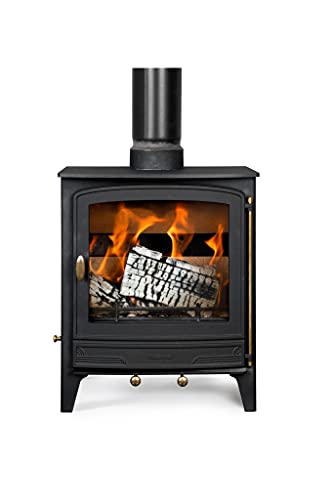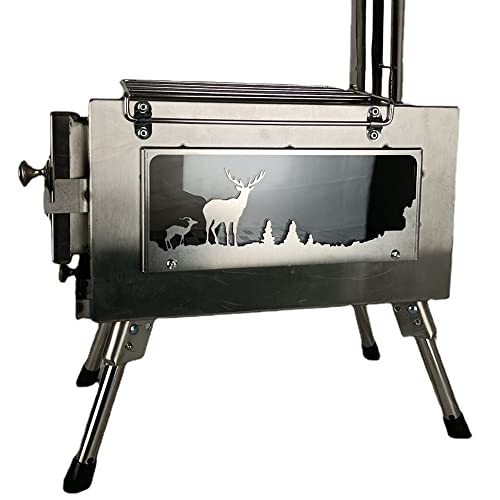11 Ways To Fully Redesign Your Shed Wood Burner
페이지 정보

본문
 Shed Wood Burner - Safety Considerations
Shed Wood Burner - Safety ConsiderationsInstalling a stove in a shed, a log cabin, or a different off grid dwelling is a fantastic idea. There are some things to consider prior to doing so.
To cut down on fuel costs and heat loss, it's important that your cabin or shed be properly and properly insulated. Insulation also helps to reduce dampness and increase fire safety.
Size
A shed log burner can be used to heat a summerhouse or a shed. It is crucial to choose the right stove for your home and ensure that it meets all of the safety standards required. A stove that is too big isn't able to properly vent and can also rapidly soot up the flue. On the other the other hand, a stove which is too small wood burning stoves won't be in a position to heat the room effectively.
It is important to first determine the size of the shed and then decide on the location of the stove. Once you've decided on the location you'll need to construct a hearth for the stove to sit on. The hearth should be at least 12mm in thickness and constructed of a non-combustible substance. The safe distance between a single wall flue pipe and any combustible material is 3x its diameter however, this distance can be reduced by using an insulative board as shielding.
Once you've constructed the hearth, then put in the stove. Based on the type of stove you want to install, you may need to buy the stove door, stovepipe, or damper. Install an alarm for carbon monoxide in your cabin or shed because they are smaller spaces than homes and can quickly fill up with CO gas.
Installing a stove in an portable outdoor wood burning stove space will require you to install a chimney liner in order to ensure safety and stop condensation. Flue liners can be found at most hardware shops and are easily cut to the proper length. Use tin snips for removing the lid and bottom of the can. Be sure to bend any sharp corners inside.
Safety
Shed wood burning stoves are effective and comfortable, but they should be installed with care. This includes the proper installation and usage of the stove as well as a carbon monoxide alarm and fire extinguisher. To minimize the chance of an accident it is essential to keep pets and children away from the stove.
It is recommended to use an HETAS registered installer to install your shed stove. They can ensure that the installation is done in accordance to building regulations. This includes the proper distances away from combustible wall. This will help you avoid the requirement for an official building control certificate.
You will need to ensure that you burn dry, well-seasoned best wood stoves for tents (visit the next web page) that has been kiln dried in your stove for your shed. Don't attempt to burn treated off-cuts, because this can result in the release of chemicals in the flue gases that could cause pollution and decrease the quality of air. You will also need to ensure that you have a properly sized chimney. In most sheds, a single wall flue is sufficient however if your shed will be using a double wall stove, you will require a bigger chimney.
Smoke from a wood-burning fireplace can be hazardous, especially for pregnant women, children and the elderly. It can also be harmful for people with asthma, COPD or heart diseases, and it can affect pets and dogs as well.
A fire-proofing screen should be used to protect children and pets from hot embers and sparks, and it is recommended to keep a book of fire logs and an extinguisher in case in the event of an emergency. Also, small Wood Burning fireplace ensure that you never employ charcoal starter fluid near your stove in the shed since they are highly flammable substances and can explode or ignite in the case of an accident.
You could be living in a smoke-control region. This will affect the type of stove you can put in. You should select the right log stove that has been approved by DEFRA.
Installation
Having a log burner in your summer house or shed is a great idea that will bring you closer to nature in a way that isn't possible with a normal fireplace in your home. A log burner in your shed or garden can be a great place to gather with family and socializing. It also lets you to enjoy the great outdoors in the at-home comforts of your home.
When you are installing a wood burner in a shed it is important to consider the size of your summerhouse or shed and the output you require from the stove in order to heat it properly. You'll also need to consider if you live in a smoke-control area and if there are local regulations on planning that could affect your installation. You should consult a HETAS-registered installer to assist you with the planning and installation.
You will need to determine the size of the flue pipe that your shed can support before installing a wood stove for shed. This is typically a simple process and the company that sells your stove can help you on this. Once you know the size flue pipe you will need, you can start to look for log burners for your shed that are suitable for your summer house.
Once you have decided on the right stove for the summerhouse or shed you have to prepare the area for installation. This includes removing any materials that could ignite and ensuring that there is an adequate distance of 1m from the shed to the front edge of the chimney stack. It is also essential to make sure that the stove is placed at least 2m away from the closest combustible walls and that any combustible material in the shed is covered with fire board or insulated.
The hearth should be made from non-combustible materials, and at least 12mm in thickness. You can choose any type of concrete or stone, for instance, however, you should be careful not to use sand because this could affect the stove's performance and result in a chimney failure. You'll also require a pair of twin wall flue pipes as well as a class D airvent and chimney cowl.
Maintenance
Shed wood burners are generally safe to use provided that they have adequate ventilation and a smoke alarm installed. If you are planning to install a wood stove in your shed, ensure that the electrical installation has been signed off by an electrician and that any flammable material is well away from the stove.
Clean the chimney and glass of your log heater in your shed regularly. You can use a gentle splash of vinegar to wash away any marks or smudges that have accumulated on the inside of the stove glass - be sure not to spill any vinegar inside the burner. You can also apply a mild solution of washing liquid on paper towel to clean the exterior of the log burner glass.
Remember that shed log burners are designed to be used with dry seasoned firewood. The moisture content of the portable wood burning stove indoor should be less than 20%. Utilize a wood moisture gauge to determine the moisture content of your logs. Keep your wood in a well ventilated shed, and make sure to keep any flammable items like curtains and furniture away from the shed. It's also recommended to have the chimney swept at least every year.

- 이전글20 Tips To Help You Be More Efficient At Sectional Sofa Bed Sleeper 25.01.09
- 다음글Make the most of Seo Tools - Read These Nine Tips 25.01.09
댓글목록
등록된 댓글이 없습니다.
